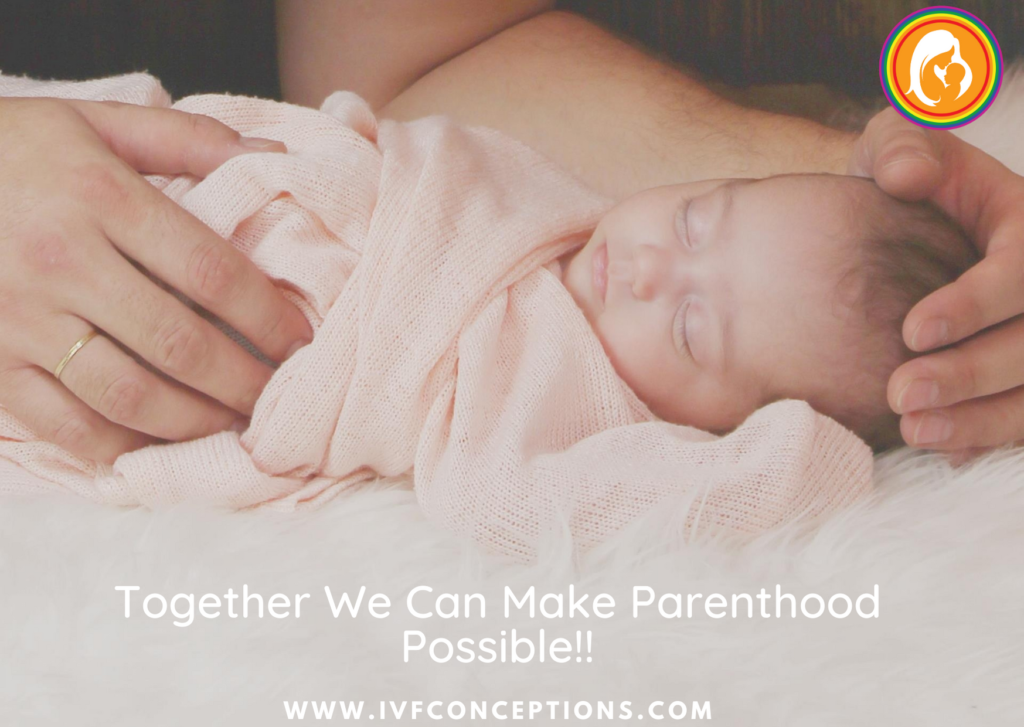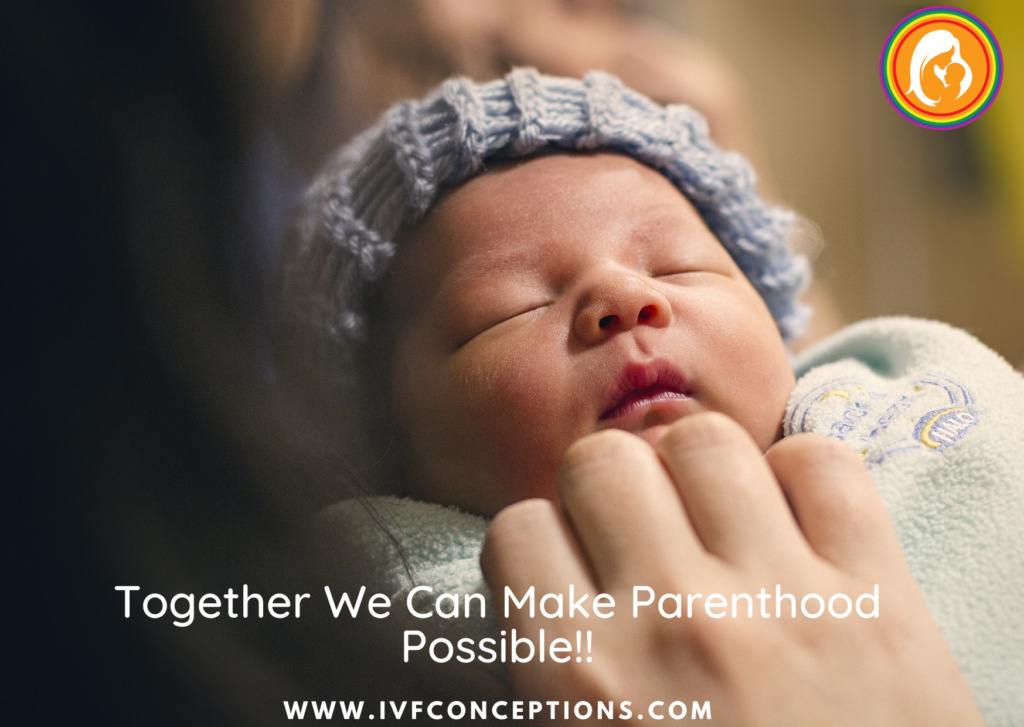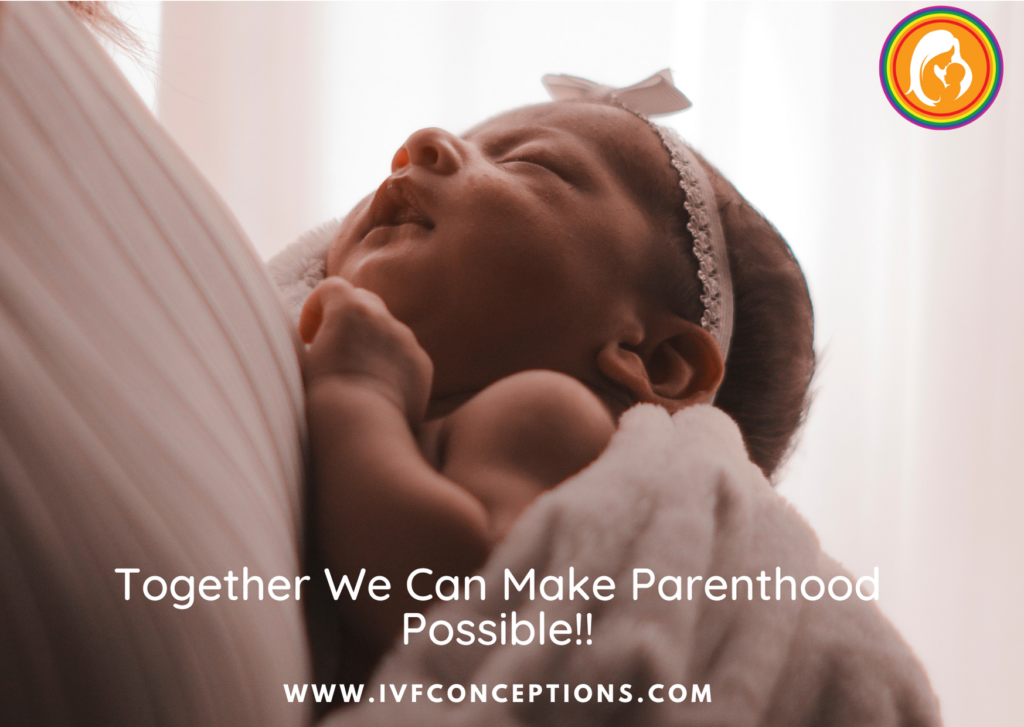Pregnancy After Miscarriage is possible! Let’s explore this in detail.

According to the Centers for Disease Control and Prevention (CDC), approximately 10-25% of clinically recognized pregnancies end in miscarriage. This means that each year in the United States, there are an estimated 300,000 to 600,000 miscarriages. However, it’s important to note that many miscarriages occur early in pregnancy before a woman even knows she is pregnant, and as such these numbers may be underestimated.
Additionally, it’s also important to note that these numbers are for clinically recognized pregnancies, and many miscarriages happen before it’s clinically recognized. In this article, we will discuss that pregnancy after miscarriage is possible and what you need to know to improve your chances of success.
Get in touch for FREE SURROGACY CONSULTING:
Mobile: +91-8800481100 ( WhatsApp, Line, Viber)
Email: neelam@ivfconceptions.com

Here are a few FAQs regarding pregnancy after miscarriage –
A miscarriage is a loss of pregnancy before the 20th week. It can be a difficult and emotional experience for those who have gone through it. If you are considering getting pregnant again after a miscarriage, there are several things you should know.
It is good to allow yourself time to grieve and process the loss before trying to conceive again. The American College of Obstetricians and Gynecologists recommends waiting at least one to three months before trying to conceive again to be physically and emotionally ready for another pregnancy.
Your healthcare provider may recommend a check-up before trying to conceive again to make sure that you are healthy and to rule out any underlying conditions that may have contributed to the miscarriage.
You may also want to talk to a counselor or therapist to help you cope with the emotional aspects of the miscarriage and prepare for another pregnancy.
No word or action can reduce the grievances of women who have suffered a miscarriage. Although some begin to conceive instantly, others take months or years to cope with their emotional burden or loss.
A variety of emotions after loss is natural to experience. The good news is the majority of women have a safe and healthy pregnancy after miscarriage.
So how easily can you get pregnant after a miscarriage and is there a good time to start having babies again? Let’s talk about it.
#1. Understanding miscarriage
The loss of a child through a miscarriage or death is one of the most devastating events in a couple’s lives.
Most people are unaware that the first few weeks (Up to 12 weeks) of pregnancy usually involve a large number of pregnancies in a miscarriage. Since this is a common and serious issue, an effective assessment should be made of the possible causes, for patients with recurrent miscarriages.
A miscarriage is generally an occurrence of child death in the first 20 weeks of pregnancy up to around the fifth month. Most of these women aren’t yet conscious that they are pregnant early in pregnancy.
Signs such as cramping, diarrhea, or potentially clots from the vagina can also be induced in some. Most experts believe that about 20% of all births are experiencing symptoms, but that the remaining is “silent” and does not trigger noticeable symptoms.
An overwhelming amount of miscarriages arise in the first trimester and even fewer in the second quarter.
There are many reasons for miscarriages such as –
- A uterine abnormality (womb) may cause approximately 15% of recurrent abnormalities. The uterine muscle is somewhat malformed and can’t grow the fetus properly in this case.
- Any unusual vaginal infections may cause repetitive miscarriages, but it does not seem to be popular.
- In the second quarter, an “incompetent cervix” may contribute to pregnancy failure.
- In certain instances, either due to one or both parents’ chromosomal issues, it can lead to multiple miscarriages.
- Autoimmune problems, when certain chemicals attack the cells and tissues in the bloodstream can result in a loss of pregnancy. Such compounds, classified as “antibodies,” migrate in the bloodstream and can never cause difficulty or may lead to illnesses such as arthritis, lupus, antiphospholipid syndrome, hypothyroidism or other diseases.
- The hormone progesterone is essential to sustain conception during the initial week of pregnancy. It is first developing during conception while the ovaries are healthy, called the corpus luteum. Although sometimes controversial, a “luteal stage defect” in some doctors may result in recurring pregnancy loss.
- Finally, an all-immune disorder is a highly controversial cause of recurring miscarriages, in which men and women have too much genetic material in common. In theory, the mother’s body is rejecting the fetus like a transplant patient could reject a new organ
#2. Having sex after a miscarriage
After a miscarriage, your body is likely to complete the procedure itself; otherwise, you would need a D&C to remove the contents of your uterus surgically. How long would you have sex after a miscarriage?
A lot of doctors recommend seeing the OB-GYN around two weeks after the miscarriage for a follow-up. The doctor advises patients to move on to intercourse if everything looks OK. Yet the doctor states that it could take a couple of weeks for women who had D&C to check their bleeding.
#3. How to conceive after a miscarriage?
The trick after a miscarriage is no different from what it was initially. You will seek to have sex as soon as possible to ovulate and have sex every other day in the days before it.
In addition to general pregnancy planning guidelines – for example, a healthy diet and prenatal vitamins – mothers can “test” their emotional well-being. The most important thing: ask the doctor whether you can try to conceive again.
Every miscarriage is different, and the doctor will advise you on personal safety. You just don’t want to be pregnant for substituting pregnancy.
#4. Will my second pregnancy result in a miscarriage?
If you have recurrent baby loss, make sure to work closely with your doctor. Some health conditions can place you at a greater risk of miscarriage, although up to 75 percent of repetitive errors can be an unknown cause.
Old statistics have been available that people are generally more likely to miscarry if they attempt immediately, but this is all debunked. You have a chance of a good, stable pregnancy after a miscarriage.
At least 85 percent of people recovering from a miscarriage will tend to have a stable, full-length pregnancy afterward, according to the American Pregnancy Association (APA).
#5. What will you feel after a miscarriage?
You will probably feel cheerful and anxious, once you become pregnant again after a miscarriage. When you become pregnant again, even after a healthy child is born, anxiety and depression will continue. Talk about it and let yourself fully experience your feelings. Take care of your partner, family, and friends. Consult your healthcare provider or counselor for extra assistance if you have problems managing your emotions.
#6. How can I ensure a healthy pregnancy after miscarriage?
You can’t do anything to stop a miscarriage. But you and your baby need to make healthy lifestyle choices. Take a daily intake of prenatal vitamins and folic acid, preferably beginning a few months before conception.
Restrict caffeine during pregnancy and avoid smoking, illicit drugs, and alcohol.
Related:
All you need to know about infertility in elderly women
Conclusion
It is also important to be aware that the risk of miscarriage is slightly higher in women who have had a previous miscarriage. However, it is important to remember that most women who have had a miscarriage go on to have successful pregnancies.
In conclusion, it is important to allow yourself time to grieve, ensure you are physically and emotionally ready, and talk to your healthcare provider and counselor before trying to conceive again after a miscarriage. However, you should understand that miscarriage is not in her control.
You should know that the world does not end here, with proper guidance and support you can again have a healthy child.
If you’d like to learn more about IVF, Egg Donation, or surrogacy services globally, check out the rest of our website: IVF Conceptions. We offer legally secure and affordable surrogacy consulting services for FREE.
Get in touch for FREE SURROGACY CONSULTING:
Mobile: +91-8800481100 ( WhatsApp, Line, Viber)
Email: neelam@ivfconceptions.com

FAQs: Pregnancy After Miscarriage
1. How long should I wait to try to conceive after a miscarriage?
- It’s generally recommended to wait at least one to three menstrual cycles before trying again. However, consult your doctor for personalized advice based on your physical and emotional health.
2. Is it harder to get pregnant after a miscarriage?
- Most women can conceive again after a miscarriage, and fertility is usually not affected. In fact, some studies suggest that women may be more fertile in the months immediately following a miscarriage.
3. What are the chances of having another miscarriage?
- The chances of having another miscarriage after one are typically low. After one miscarriage, the risk of recurrence is about 15-20%, which is similar to the general population.
4. What causes miscarriage, and how can I prevent it?
- Miscarriages can be caused by genetic issues, infections, hormonal imbalances, or lifestyle factors. While not all miscarriages can be prevented, maintaining a healthy lifestyle, managing stress, and receiving proper prenatal care can help reduce risk.
5. What are the emotional effects of pregnancy after a miscarriage?
- Anxiety, fear, and emotional stress are common during subsequent pregnancies. It’s important to seek emotional support from loved ones or professionals and consider counseling if needed.
6. Are there any tests I should take before trying to conceive again?
- Your doctor may recommend tests such as hormone evaluations, genetic testing, or ultrasound exams, especially if you’ve had multiple miscarriages. These can help identify potential issues.
7. What are my options if I have recurrent miscarriages?
- If you’ve had recurrent miscarriages, your doctor may recommend further testing to identify the cause. Treatments may include hormone therapy, surgery to correct uterine issues, or lifestyle changes.
8. Is it safe to get pregnant right after a miscarriage?
- In many cases, it’s physically safe to try again right after a miscarriage. However, doctors may recommend waiting to allow your body to heal and to regain emotional readiness.
9. How can I increase my chances of a healthy pregnancy after a miscarriage?
- To increase your chances, focus on a balanced diet, regular exercise, prenatal vitamins (especially folic acid), and avoid smoking, alcohol, and other harmful substances. Regular prenatal check-ups are essential.
10. Should I be concerned if I don’t feel emotionally ready to try again?
- It’s completely normal to need time to process the emotional aftermath of a miscarriage. Take as much time as you need before trying to conceive again and consider seeking emotional support.
11. What signs should I watch for in a pregnancy after a miscarriage?
- Spotting, cramping, or any unusual symptoms should be reported to your doctor immediately. Regular prenatal check-ups are essential to monitor the health of you and your baby.
12. Does a previous miscarriage affect future pregnancies?
- In most cases, a previous miscarriage does not negatively impact future pregnancies. However, if there have been multiple miscarriages, further evaluation may be necessary to rule out underlying issues.


